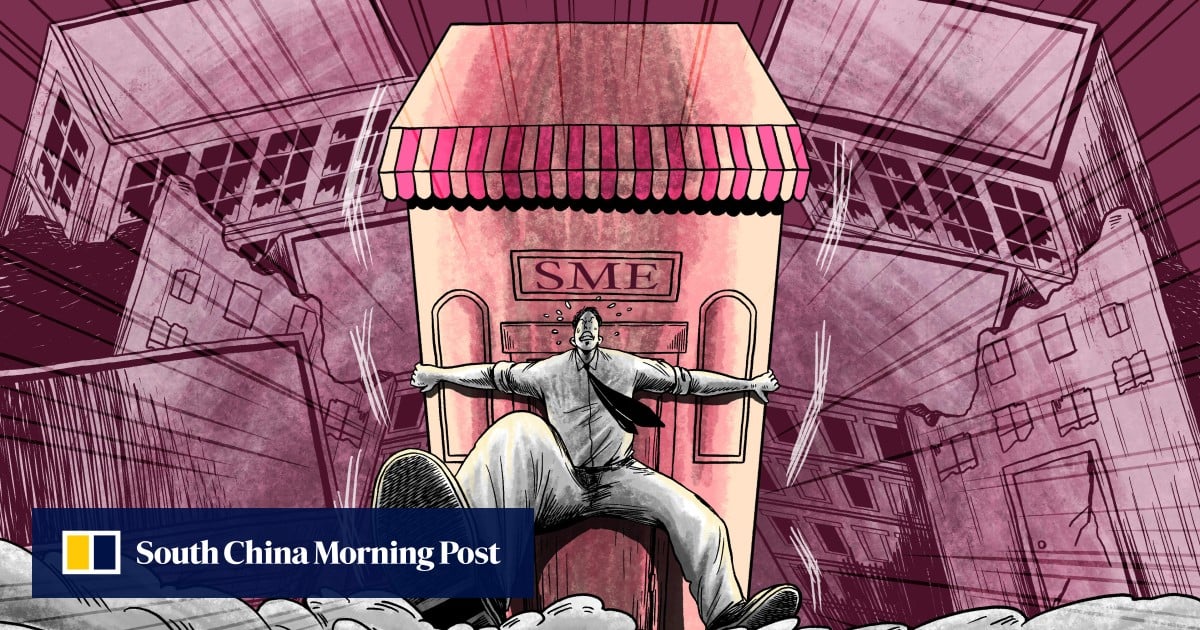



Hong Kong's commerce minister, Algernon Yau, has officially ruled out the revival of the 'Special 100% Loan Guarantee Scheme' for small and medium-sized enterprises (SMEs), which was initially launched in 2020 to support businesses during the pandemic. The scheme, which approved loans totaling HK$143.2 billion for about 67,000 cases, was halted in March 2024 due to a concerning 9.2% default rate and a government liability of HK$13.2 billion. Yau cited the ongoing economic recovery and the burden on public finances as key reasons for not reintroducing the scheme [ecb72cbf].
Despite the government's decision, many SMEs are facing severe challenges, with reports indicating that 360,000 SMEs account for over 98% of businesses in Hong Kong and employ 45% of the private sector workforce. A significant number of these businesses are on the brink of collapse due to cash flow issues, loss of business, and an exodus of investors. For instance, Arthur Yeung's Nebraska Steakhouse is set to close on November 10 after losing HK$5 million since the pandemic [823fee2d].
In response to the financial difficulties faced by SMEs, Chief Executive John Lee Ka-chiu has urged businesses encountering loan hurdles to contact the Monetary Authority, which is responsible for ensuring effective implementation of government policies. This follows concerns raised by a radio listener regarding loan rejections by HSBC. Lee emphasized the need for banks to align with government directives and support SMEs [2ec90b62].
A task force established by the Monetary Authority in August aims to assist SMEs under financial pressure. Financial Secretary Paul Chan Mo-po has also urged banks to alleviate liquidity issues for SMEs and homeowners since March [2ec90b62]. Recent policy measures include easing mortgage lending restrictions and allowing SMEs to apply for a principal moratorium for up to 12 months, indicating a proactive approach by the government to support struggling businesses [2ec90b62].
However, not all SMEs are succumbing to the pressures. Dennis Lau Yat-hin, president of Wing Nin Group, plans to invest over HK$11 million (US$1.4 million) to open six new outlets in 2024, aiming for a total of 30 to 50 outlets within three years. His flagship restaurant opened in June 2024, showcasing resilience in the face of adversity [216c603e]. Similarly, Farmacy, a decentralized urban farming company, has achieved 30% annual growth and is expanding to Australia and New Zealand, indicating that some businesses are finding ways to thrive despite the economic downturn [216c603e].
The situation remains dire overall, with 88,232 firms closing in 2022, 94,002 in 2023, and 64,594 in the first seven months of 2024. Bankruptcies reached a two-year high in May 2024, with 871 filings. Retail sales also fell by 11.8% year-on-year in July 2024, further exacerbating the financial strain on local businesses [823fee2d].
Danny Lau Tat-pong has called for the revival of the 100% loan guarantee scheme, which previously approved HK$136.9 billion (US$17.6 billion) for 65,049 applications, to provide much-needed support to struggling SMEs [216c603e]. Additionally, the government has distributed consumption vouchers of HK$5,000 in 2021, HK$10,000 in 2022, and HK$5,000 in 2023 to stimulate spending. The SME Financing Guarantee Scheme has approved HK$282.2 billion in loans since 2012, and government initiatives include technology vouchers and funding for e-commerce projects [216c603e].
Experts suggest that SMEs should align with technological advancements and explore new markets to enhance their resilience. George Leung, Chief Economist at Hang Seng Bank, noted that potential interest rate cuts in the United States could improve market conditions, which may indirectly benefit local SMEs. However, confidence restoration is crucial for recovery, and Financial Secretary Paul Chan has urged banks to assist SMEs in navigating these turbulent times [ecb72cbf][823fee2d].
The decision not to revive the loan scheme reflects a broader shift in Hong Kong's economic policies as the government seeks to balance financial responsibility with the need to support local businesses. As the economy continues to recover, the government is exploring alternative measures to assist SMEs without incurring additional liabilities that could strain public finances [ecb72cbf].